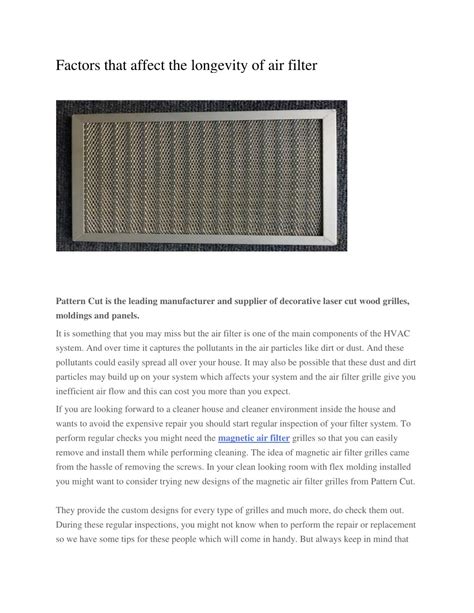Berkey Filter Life: Factors That Affect Filter Longevity
Berkey water filter systems are renowned for their exceptional water purification capabilities, but understanding the lifespan of their filters is crucial for maintaining optimal performance and ensuring your drinking water remains safe and delicious. This article delves into the factors that significantly influence Berkey filter longevity, helping you maximize their effectiveness and understand when replacement is necessary.
How Long Do Berkey Filters Last?
The manufacturer suggests a lifespan of approximately 6,000 gallons or approximately 3 years for a Black Berkey filter. However, this is merely an estimate. The actual lifespan is highly variable and depends on several factors detailed below. Don't solely rely on a timeframe; regularly assess your water's quality and the filter's performance.
Factors Affecting Berkey Filter Lifespan
Several factors contribute to the variation in Berkey filter lifespan. Understanding these allows for better maintenance and informed replacement decisions.
1. Water Quality: The Primary Influencer
The most significant factor affecting filter lifespan is the quality of the incoming water. Water rich in sediment, chlorine, minerals, or organic matter will clog the filters more quickly.
- High Sediment Levels: Cloudy or murky water will rapidly reduce filter effectiveness and shorten their life. Pre-filtration using a sediment filter can extend the life of your Black Berkey filters.
- High Chlorine Levels: Chlorine is a powerful disinfectant, but it also degrades filter media over time. Areas with heavily chlorinated water will necessitate more frequent filter replacements.
- High Mineral Content: Hard water containing high levels of minerals like calcium and magnesium can lead to faster clogging. While Berkey filters are designed to handle minerals, excessive mineral buildup can reduce their lifespan.
- Organic Matter: The presence of organic materials, such as bacteria, algae, or decaying plant matter, significantly impacts filter performance and longevity.
2. Water Usage: Frequency and Volume
The more water you filter, the faster the filters will become saturated. A household with high water consumption will naturally see their filters degrade quicker than a household with low consumption.
3. Filter Cleaning and Maintenance: Prolonging Lifespan
Proper maintenance plays a vital role. While Berkey filters don't require frequent cleaning, occasional flushing can help remove loose sediment and prolong their life. Following the manufacturer's instructions for cleaning and avoiding harsh chemicals is crucial.
4. Storage Conditions: Before and After Installation
Storing filters improperly before installation can compromise their effectiveness. Always store them in a cool, dry place, away from direct sunlight and moisture.
5. Flow Rate: A Sign of Degradation
A noticeably slower flow rate is a clear indication that your filters are nearing the end of their lifespan. This reduced flow rate signifies that the filter media is becoming clogged and needs replacing.
How to Tell When to Replace Your Berkey Filters
While the 6,000-gallon estimate is helpful, consider these practical indicators:
- Slow Water Flow: As mentioned, significantly slower flow is a major sign.
- Discolored Water: If the filtered water is cloudy or has an unusual color, it's time for replacement.
- Taste and Odor Changes: If you notice a change in the taste or odor of your filtered water, it might be due to filter degradation.
- Visual Inspection: While not always foolproof, inspecting the filters for visible clogging can offer clues.
What Happens When Filters Are Overused?
Overused filters won't just deliver slower filtration; they can also compromise the quality of the filtered water. This means potential contaminants might pass through, negating the entire purpose of the filter.
Conclusion
Prolonging the life of your Berkey filters involves understanding the factors influencing their longevity and implementing preventative measures. Regular monitoring of water quality, proper maintenance, and careful observation of flow rate and water quality are all critical to maximizing filter effectiveness and ensuring you continue to enjoy clean, safe drinking water. Remember, replacing your filters when necessary is essential for maintaining the quality and safety of your water supply.

